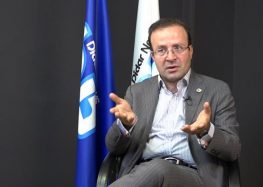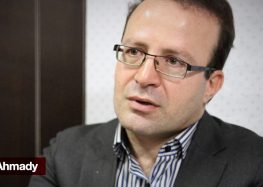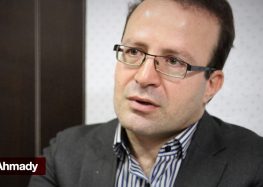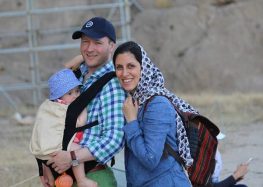Iran Shrugs Off US Demand for Release of Imprisoned Citizens
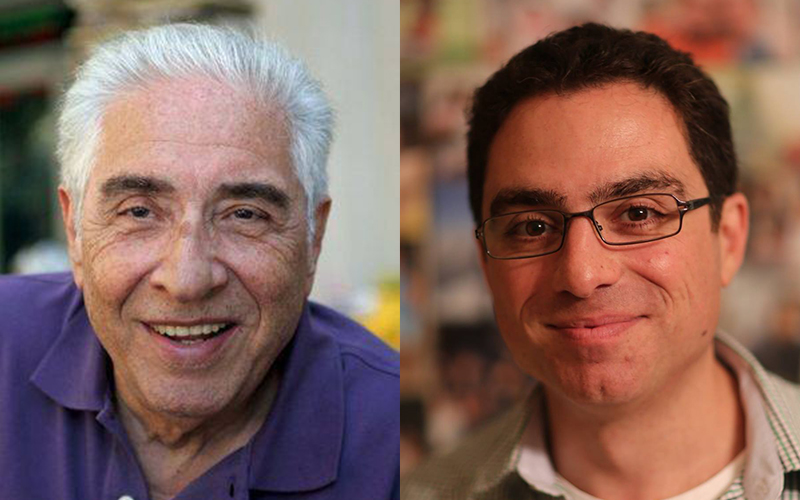
Iranian-American citizens imprisoned in Iran include 80-year-old Baquer Namazi (left), and his son Siamak.
Iranian Judiciary Chief Sadegh Larijani has responded to the Trump administration’s recent demand that Iran free imprisoned US citizens by demanding that the US free Iranians held in US prisons.
The judicial official’s comments did not address the fact that US citizens who have been and are currently imprisoned in Iran have been sentenced in secret trials on vague national security charges with scant or non-existence evidence in cases marked by the denial of due process.
“Not America, not any country has the right to interfere” in the Islamic Republic of Iran’s affairs,” said Larijani in a meeting with senior judicial officials on July 24, 2017, adding that, “Iranian prisoners should be freed immediately” from US prisons.
Larijani was responding to a White House statement issued on July 21 warning that “President Trump is prepared to impose new and serious consequences on Iran unless all unjustly imprisoned American citizens are released and returned.”
“For nearly forty years, Iran has used detentions and hostage-taking as a tool of state policy, a practice that continues to this day with the recent sentencing of Xiyue Wang to ten years in prison,” it added.
In an article full of unsubstantiated accusations, the Iranian judiciary’s news agency Mizan reported on July 16 that Wang, an American researcher from Princeton, had been sentenced to 10 years in prison on unspecified espionage charges.
However, the majority of Americans and other foreign nationals currently imprisoned in Iran are dual nationals with Iranian citizenship.
“Dual nationals are treated exactly the same as all Iranians,” said Larijani. “If Mr. Trump and his administration act recklessly against Iran, the Islamic Republic will have a firm tooth-crushing response for them,” he said.
Iran does not recognize dual nationalities and has denied all imprisoned dual nationals and foreign residents consular access.
Larijani also claimed that the US demand for Iran to release former FBI staffer Robert Levinson “makes no sense.”
Iranian officials have “repeatedly said that he has left Iran and we have no information about his situation,” said Larijani. “Repeating this demand is very irrational. Of course, there are indications that this individual has been sighted in some countries, but this has nothing to do with the Islamic Republic of Iran.”
Levinson, who was reportedly working on an unapproved CIA mission at the time of his disappearance, went missing in 2007 after traveling to Iran’s Kish Island. Iran insists that it has no knowledge about his whereabouts, but Levinson’s family and US officials believe the Iranian government is aware of his location.
“President Trump urges Iran to return Robert Levinson home, who has been held for over 10 years, and demands Iran release Siamak and Baquer Namazi, who were taken during the Obama administration, along with all other American citizens unjustly detained by Iran,” the July 21 White House statement added.
At least 12 foreign nationals are currently imprisoned in Iran, including four people with US citizenship: Siamak Namazi, his father Baquer Namazi, Karan Vafadari and Xiyue Wang.
The judiciary’s ongoing imprisonment of dual nationals contradicts President Hassan Rouhani’s repeated calls for expatriates to return to Iran. The growing number of arrests also reflects hardliners’ efforts to prevent the engagement with the West that the Rouhani administration has sought to encourage.
Iranian-American citizen Karan Vafadari has been imprisoned in Iran since July 20, 2016 without sentence on charges including attempting to overthrow the Islamic Republic and recruiting spies through foreign embassies.
Robin Reza Shahini, also an Iranian-American citizen, is currently free on bail while he awaits the result of the appeal of his 18-year prison sentence for charges including insulting the sacred on Facebook;” “acting against national security.”
Iran’s top judiciary official did not directly comment on the cases of the Namazis, the father and son who are currently serving 10-year prison sentences inside Tehran’s Evin Prison, or other imprisoned duals nationals including British-Iranian citizens Nazanin Zaghari-Ratcliffe or Kamran Foroughi.
However, in an interview with CBS News on July 19, 2017, Foreign Minister Mohammad Javad Zarif claimed 80-year-old Baquer Namazi “is not behind bars” at this time but “he is not free to leave the country.”
“The executive branch of the government does not have control over judicial decisions,” added Zarif.
The Namazi family quickly refuted the claim.
“I confirm that contrary to (Zarif’s) statement, both my father and my brother Siamak Namazi have been and continue to be held unjustly in the Revolutionary Guard ward of Evin Prison,” Siamak Namazi’s brother Babak wrote in a Facebook post on July 21.
“I remain extremely concerned for the health and well-being of both my father and Siamak,” added the statement. “As of today, my father has been unjustly imprisoned behind bars for 17 months and my brother Siamak unjustly imprisoned for 21 months, under very poor and worrying physical and mental conditions.”
Siamak Namazi, a businessman based in the UAE, was arrested in Tehran on October 15, 2015. His father, a former UNESCO official, was arrested on February 22, 2016 after he traveled to Iran to follow up on his son’s case.


